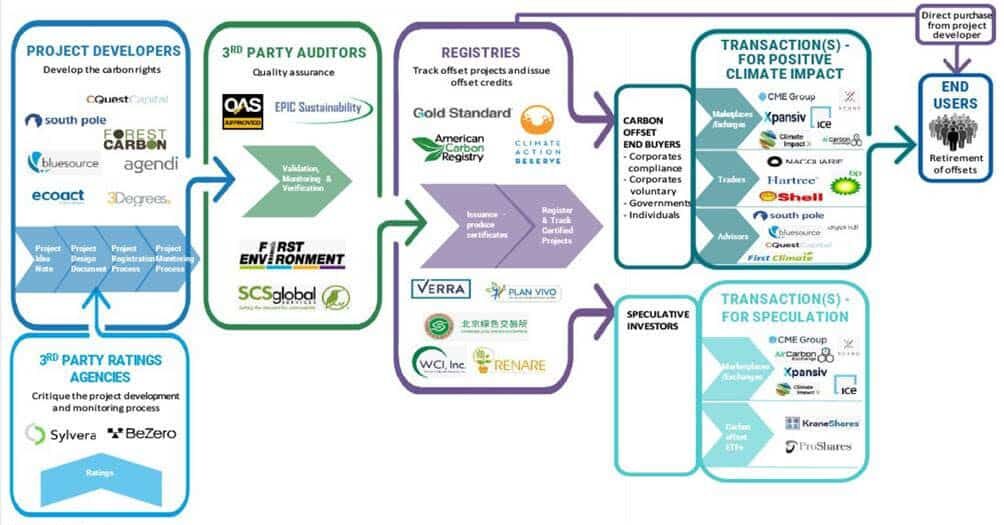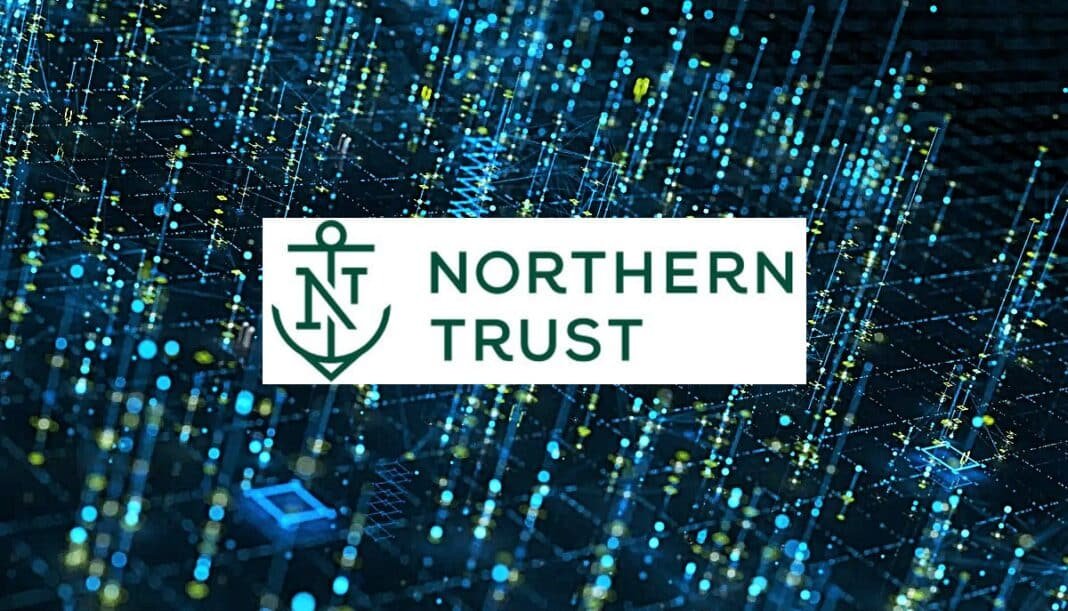Northern Trust revealed that it has completed the first stage toward a broad voluntary carbon credit ecosystem that will enable institutional buyers to digitally access carbon credits from major project developers.
Northern Trust is a leading provider of wealth management, asset servicing, asset management and banking to corporations, institutions, affluent individuals.
The Chicago-based company had assets under custody of $14.5 trillion, and assets under management of $1.4 trillion. Apart from its US offices, it also has a global presence across Canada, Europe, Asia-Pacific, and the Middle East.
Connecting Institutional Buyers and Carbon Credit Suppliers
Northern Trust’s announcement follows its significant achievement in successfully accomplishing automated transactions on its first minimum viable product (MVP) digital carbon credit platform. The institutional buyers of these transactions include the UK consultancy Mycarbon, tech company White Star Capital, and Northern Trust itself.
This initiative is part of the company’s Digital Assets and Financial Markets group which supports the fast-growing digital asset markets. Their work also helps those seeking to provide market access and insights across the traditional securities services markets.
The group’s global head, Justin Chapman, asserted the importance of this project saying that:
“The use of digital technology to manage the lifecycle of carbon credits gives both the buyer and project developers confidence and transparency through the lifecycle of their voluntary carbon credit transactions.”
A typical carbon credit goes through the following lifecycle process:

The global financial services company created the platform with major project developers, which include a direct air capture (DAC) company. This digital carbon credit ecosystem uses private ledger blockchain technology in connecting institutional buyers with carbon credit suppliers. Their goal is to provide solutions to reduce greenhouse gas emissions through carbon credits.
Carbon credits are certificates that allow the holder the right to emit a certain amount of CO2 or other GHG. Each credit is equal to one tonne of carbon reduction or removal.
The fully digital platform empowers buyers to get tokenized carbon credits directly from project developers and use them for offsetting. Retiring carbon credits means claiming their associated environmental impact (e.g. carbon reduction).
How Does Northern Trust Carbon Credit Platform Work?
The platform gives sustainability project managers a workflow to track, manage, and transact with tokenized carbon credits.
Project developers transact with purchasers of voluntary carbon credits, also known as carbon offsets, through the private blockchain.
The platform is using smart legal contracts via the Avvoka tool to generate legal agreements. These agreements serve as proofs of the transaction that transparently documents the transfer and settlement of the tokenized credits.
Northern Trust has been partnering with diverse project developers on its MVP platform. These include the following:
- Go Balance Limited: a REDD+ project developer that supports the Trocano Araretama REDD+ Project in the Municipality of Borba in Brazil;
- ReGen III: a clean-tech firm recycling used motor oil into high-grade synthetic lubricants. The company is developing a recycling facility that can prevent the emissions of 900,000 metric tonnes of carbon annually; and
- A DAC company.
According to Go Balance Limited CEO, Northern Trust’s digital platform helps them “avoid deforestation by streamlining time consuming administration tasks”. It provides them the solution to deal with their carbon credits transactions easier and with full transparency.
Tokenizing carbon credits has been considered as one of the means to bring more integrity and trust in carbon markets. The blockchain-powered carbon credit platforms come in various forms.
Revolutionizing Carbon Markets with Blockchain
Northern Trust’s ecosystem offers an end-to-end solution by providing access for both developers and buyers. Other initiatives like that of CarbonPlace seek to deliver beyond transactions to post-trade solutions. The trading platform connects sellers and buyers of carbon credits through the global banks that founded it with $45m investment.
More recently, the United Nations Development Programme (UNDP) unveiled its open source carbon registry software that uses QLDB. The goal is to enable countries to manage their national data and carbon credit trading needs.
Likewise, the United Arab Emirates (UAE) also aims to launch its own blockchain-based registration system for carbon credits. The Middle East nation has closed a deal to create the platform using the Venom public blockchain infrastructure.
In a groundbreaking deal last month, a trio partnered to launch Asia’s first digital native carbon registry – Carbonbase, HBAR Foundation, and ImpactX.
Northern Trust’s digital carbon credit platform still needs more development and its first official live transaction will be up later this year. By leveraging blockchain technology and smart legal contracts, this initiative provides a place for institutional buyers and carbon credit suppliers to meet, streamlining the process and promoting trust in carbon markets.

